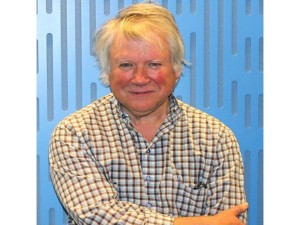Dr M was listening to Radio 3 on his way to carry out botanical surveys in Norfolk yesterday, it is National Countryside Week (did you know?) and the Radio 3 studio guest was Richard Mabey – the well-known nature writer and author of many books, including Flora Britannica which is all about plants and their history and uses in Britain (shed loads of eXtreme botany in those pages!).
Richard Mabey always writes eloquently and passionately about nature and culture, and the following quote on the radio show struck a chord and Dr M would like to share it with you:
Richard Mabey says: “We need an engagement with nature which is more than just saying that it provides for us in providing the atmosphere of the planet and the things that we eat.
We evolved as a species in fantastically close contact with nature. I went to that Ice Age art show at the British Museum earlier this year, and it was the most transfixing show I have ever seen!
That 40 000 years ago human being were already starting to be enraptured by animals, this wasn’t simply painting the things they were going to eat, it was painting things that captivated them you know, and you could see there was empathy between those people, who were scribbling on pieces of bone and on the walls of caves, between them and the animals that they lived very closely with.
And it’s embedded in our genes and if we try to deny that, get away from it, and say we’re civilised, we can leave all that behind, I mean we can’t leave it behind practically because we’d die off very fast – and I think that our disconnection from it is doing psychological damage to us as a species.”
Dr M responds:
Richard Mabey is right, nature (and that includes botany!) is good for the heart, good for the soul and good for the psyche, botany begets well-being!
Dr M comments:
Richard Mabey focuses on animals in this quote, but don’t doubt for a moment, amongst the few millions of people living in Ice Age Britain, were many who appreciated the beauty as well as the survival value of plants! It thrills Dr M to think of eXtreme botanists around way back in the Ice Age! Oh that we could interview them on Radio 3! What stories could they tell?

